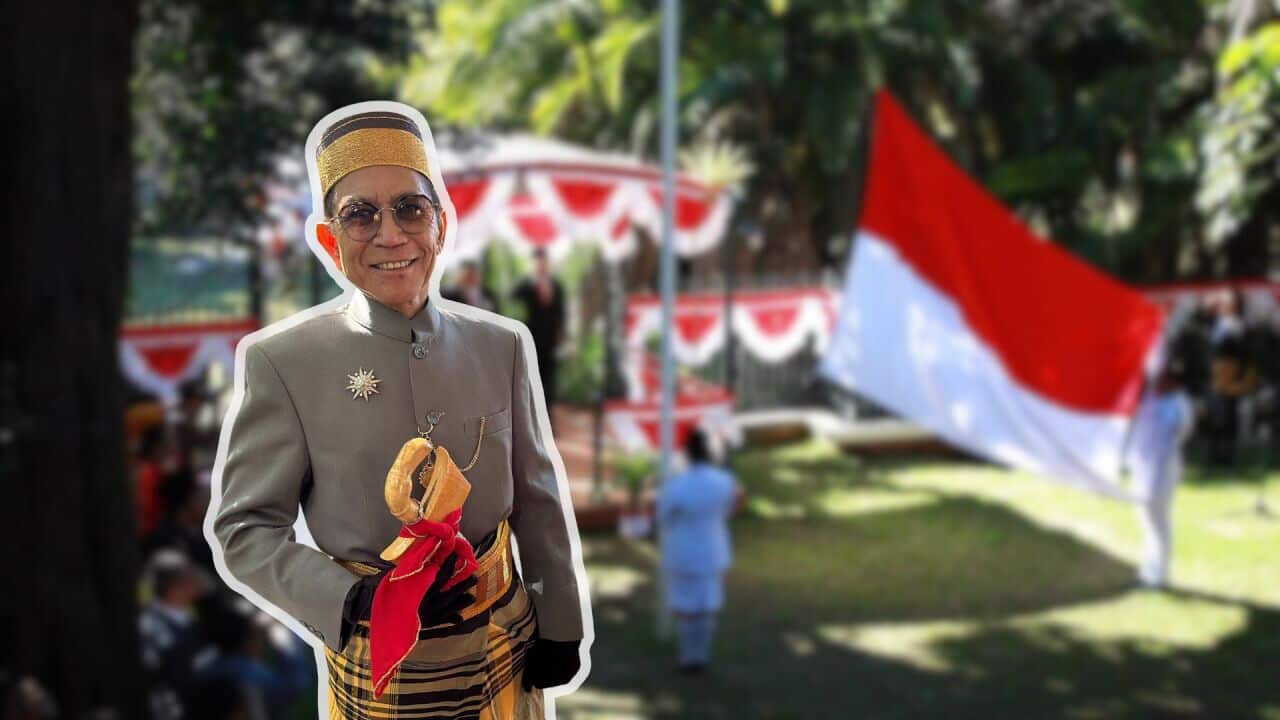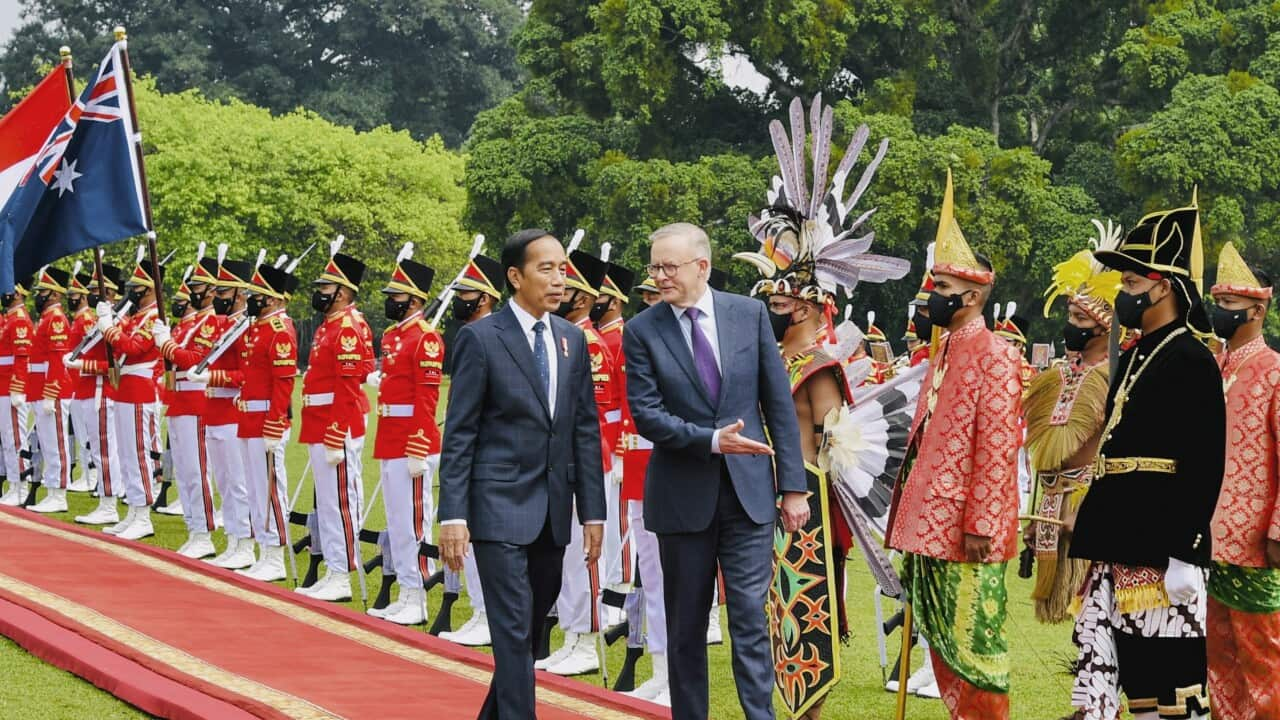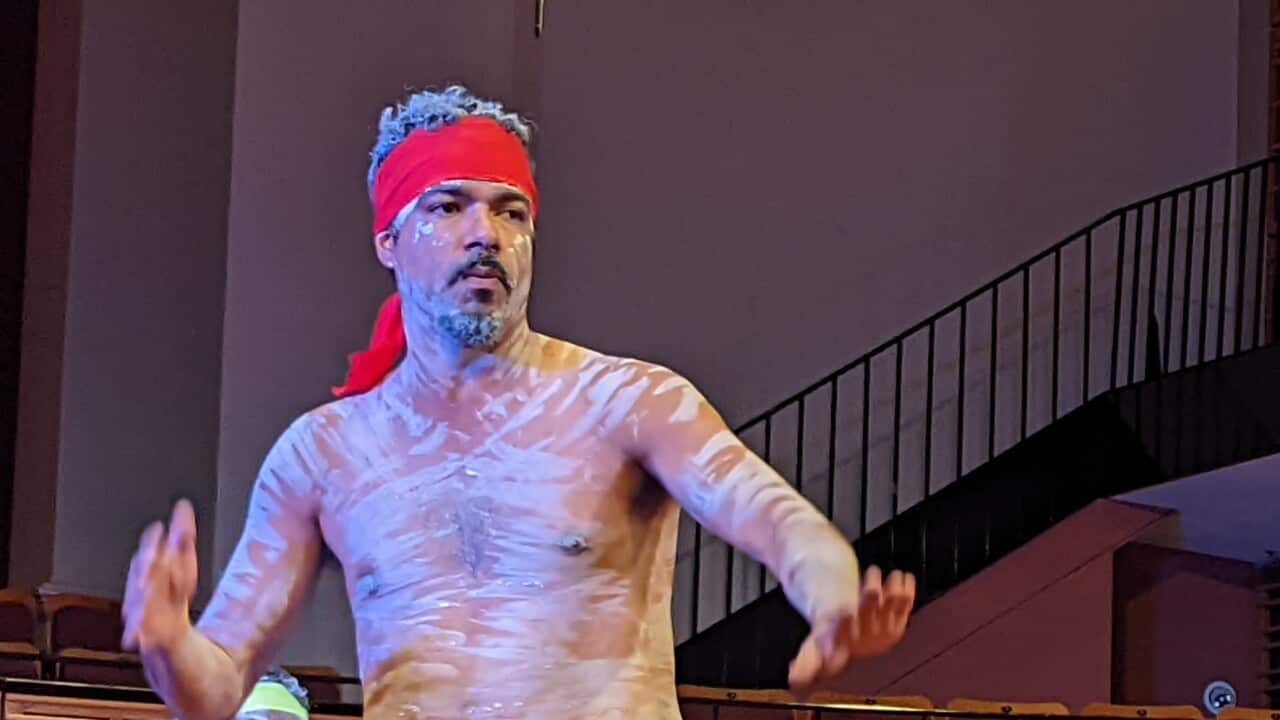Key Points
- Indonesian Independence Day falls on 17 August.
- Ceremonies and folk events will be held across Australia to celebrate the day.
- Indonesian-Australians say the best way to further reputations is to contribute to the community.
Andre Iswandi came to Australia in 1972 to study textile and fashion at Sydney Technical College, now known as TAFE NSW Sydney Institute.
"For 51 years, I have never missed coming to the Consulate General’s place to commemorate the Indonesian proclamation of independence,” he tells SBS Indonesian.
Mr Iswandi, who shares his birthday - 17 August 1945 - with Indonesian Independence Day, says that in his early days down under he befriended many locals, as there were not many Indonesians living in Australia.
It's very easy to take Indonesian [people] out of Indonesia but it is not easy to take the ‘Indonesianness’ out of an Indonesian. I am still an Indonesian who was raised eating rice, ‘sayur lodeh’ and tempeh.Andre Iswandi
The Yogyakarta-born man, who became an Australian in 1980, says he has always actively kept up his Indonesian identity.
“I formed a dance group here and taught Indonesian dances, free of charge, for everyone including Australians,” says the former student at Bagong Kussudiardja dance training centre in Yogyakarta.
78th Indonesian Independence Day
On 17 August, Indonesian Independence Day ceremonies will be held at the representative offices of the Indonesian government across Australia. Folk events are also taking place during the month of August.
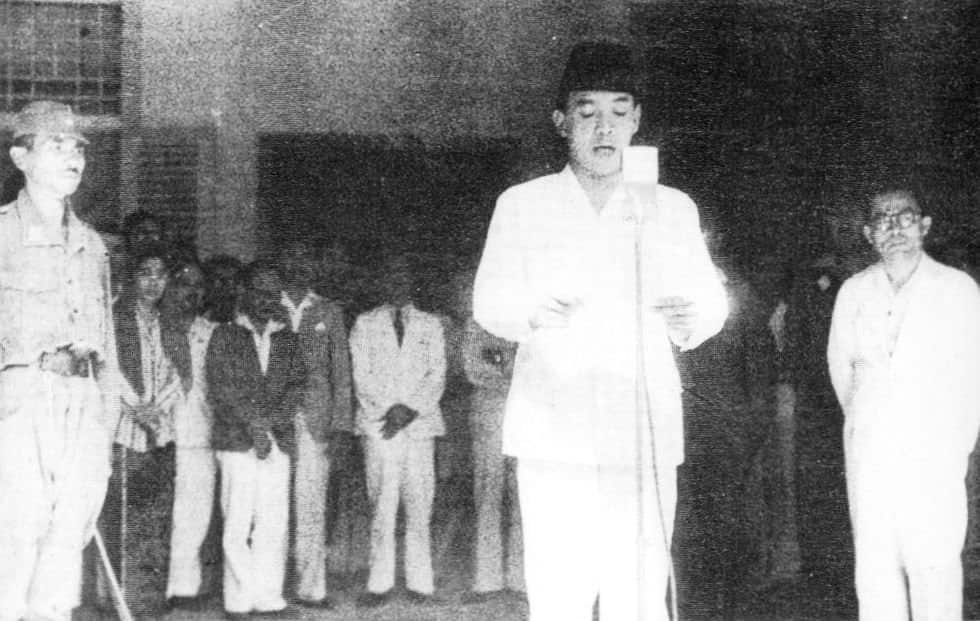
Udaya Halim, founder of the Chinese-Indonesian organisation PERTIWI in Western Australia, says any celebrations should take Australia's multicultural society into consideration.
"We will celebrate on 17 August by singing the Indonesia Raya, raising the [red and white] flag, but without offending the Australian community,” he shares.
Despite Indonesia's geographical proximity to Australia, migrants from the archipelago nation make up only 0.3 per cent of Australia's population, totalling only 89,480 people according to the Australian Bureau of Statistics 2021 survey. The groups is the 20th largest migrant community in Australia.
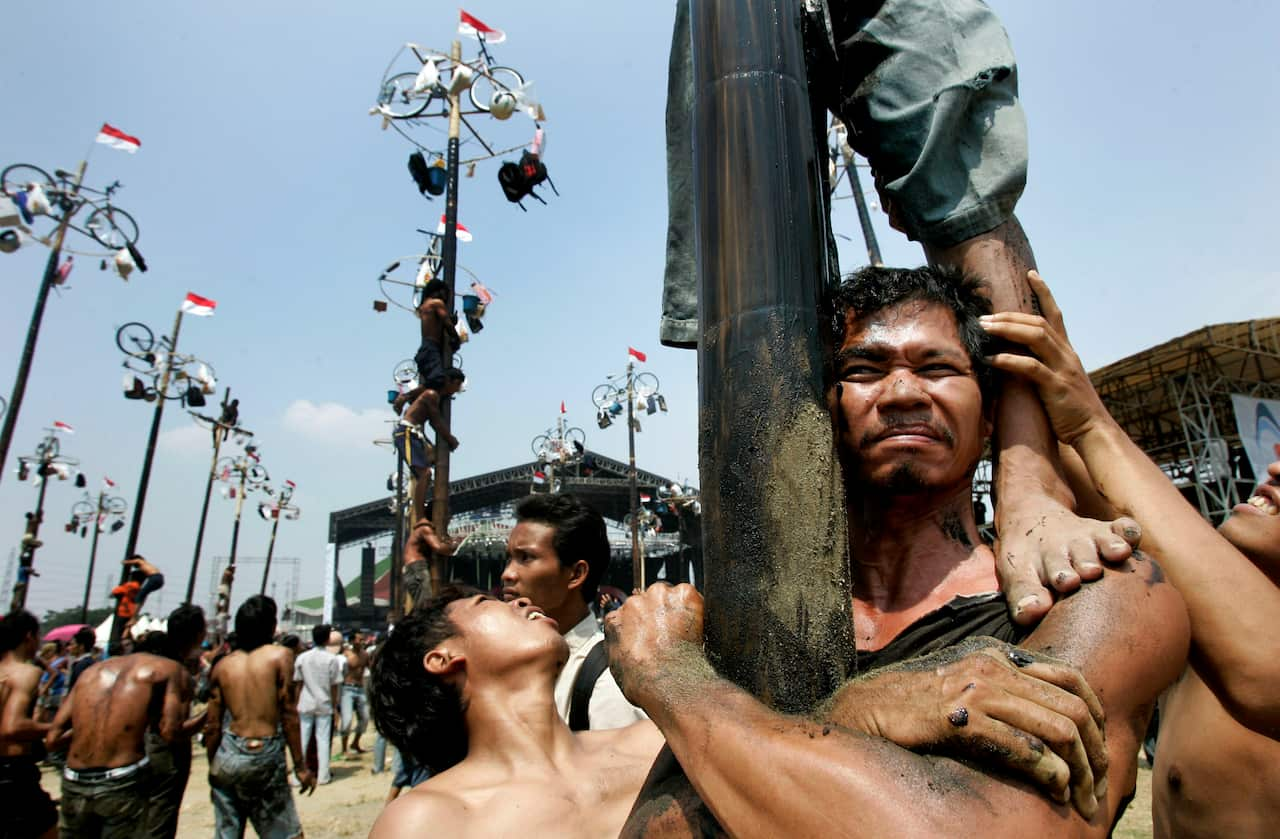
Despite the numbers, Dr Salut Muhidin, Chair of the Indonesian Diaspora Network NSW and a Macquarie University professor, believes that Indonesians can further their reputations through contributions.
"When there is no contribution from Indonesians, they [Australians] will not know what Indonesia is. It has to be [through] action, not lip service.”
Dr Muhidin’s organisation connects with the community through regular blood drives in NSW.
Similar sentiments were conveyed by a representative of the Indonesian diaspora from Victoria, Dr Mulyoto Pangestu.
We exist and contribute directly to Australian society.Dr Mulyoto Pangestu
Dr Pangestu, who is a lecturer at Monash University's Department of Obstetrics and Gynaecology, is also part of the Indonesian Muslim Community in Victoria. The community group he belongs to regularly operates food vans for the state’s homeless.
Aside from academics and professionals, a significant number of Indonesians in the country are international students.
Valentina Utari, a PhD candidate at the University of Western Australia, says that Indonesian students contribute to shaping Australian government policies through the research they do.
“The contribution of fellow Indonesian scholars towards Australian universities is knowledge," she says.
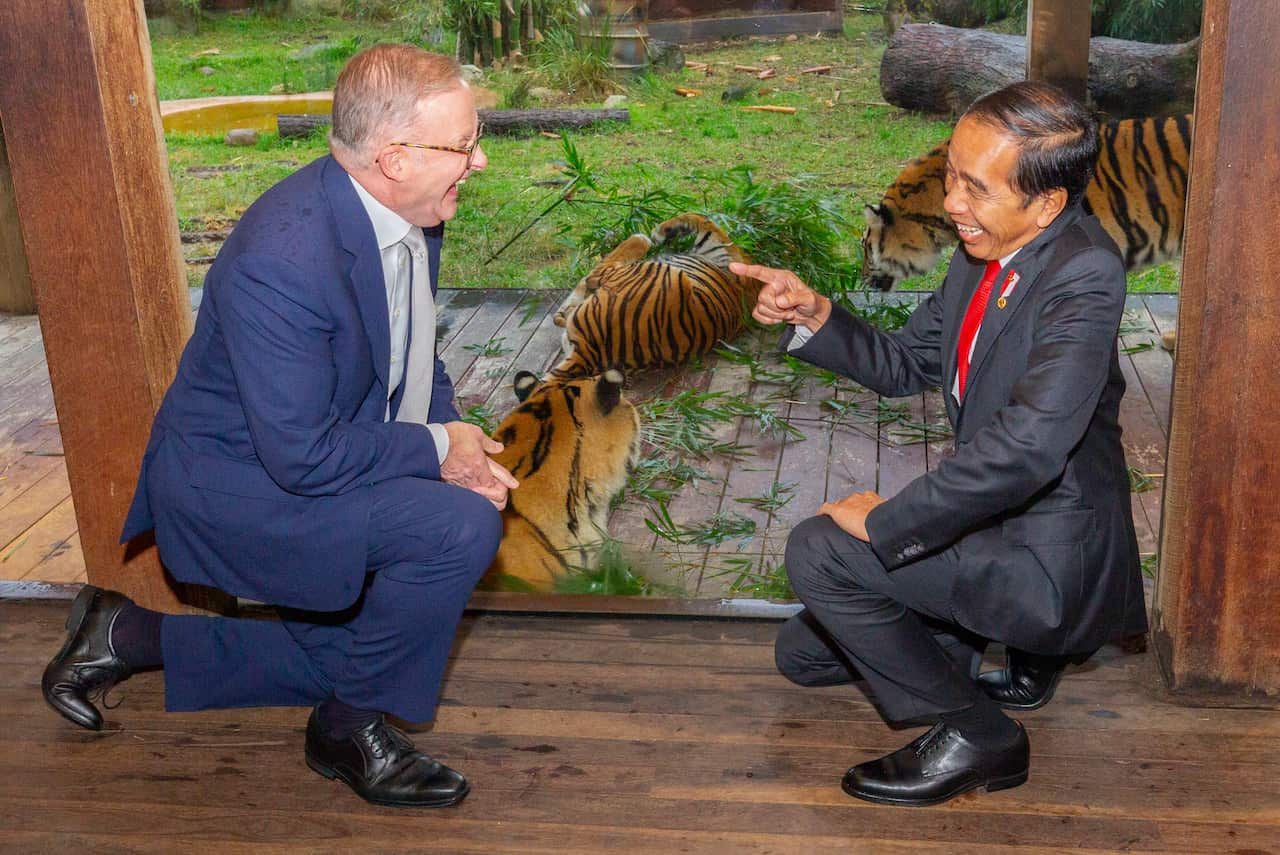
'Unofficial diplomats'
Regardless of the political stances between the neighbouring nations, Indonesians in Australia feel that they have an obligation to bridge the gap between the two countries.
Dr Muhidin refers to the role of reaching out to the Australian community as an "unofficial diplomat".
"We are Indonesians, but we also have a duty,” Mr Halim adds, "Not only do we enjoy the facilities provided by Australia, but we also have to reciprocate it through our attitudes."
Similarly, Ms Utari says that active involvement is crucial to convey their feelings of being a “grateful nation”.
"Contributions must be made because of this great opportunity. [We want to express] gratitude because it is not easy to get scholarships from local campuses," she says.
Keeping the 'Indonesianness' alive
Being actively involved in Australian society doesn't mean Indonesians put their homeland second, says Ms Utari.
Having taught in Australian universities for more than 11 years, Dr Muhidin says he also incorporates Indonesian values in his teaching.
"I try to introduce Indonesian values through case studies related to what I teach, whether it's in the form of leadership system, cultural program, or other values," says the lecturer in Applied Demography in Business.
Meanwhile for Ms Utari, "Indonesianness" means to show solidarity with Indonesians here and back home especially at times of need.
"When disaster strikes Indonesia, we raise funds [for the impacted]," she says, adding that the group she's involved with also helps other Indonesian students struggling with mental health during the COVID pandemic in Australia.
As for 78-year-old Mr Iswandi, while he stopped running his dance classes five years ago, he says he is “still up for it” if anyone is keen to learn the moves.
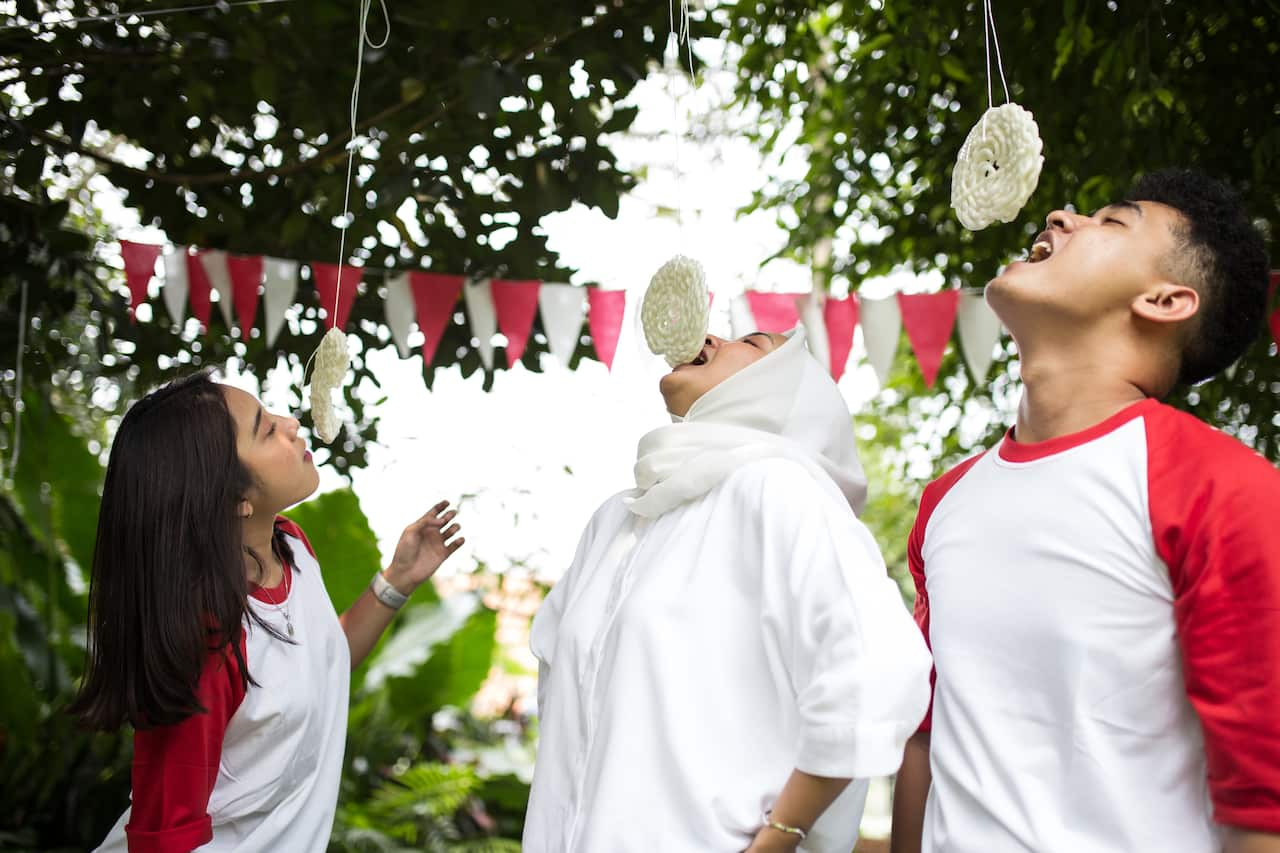
Indonesian Independence Day celebrations will take place throughout Australia, including a musical and culinary festival at Collingwood Town Hall in Victoria and the Independence Festival at the Brighton Avenue’s Korean Hall in NSW on Saturday, 19 August.
